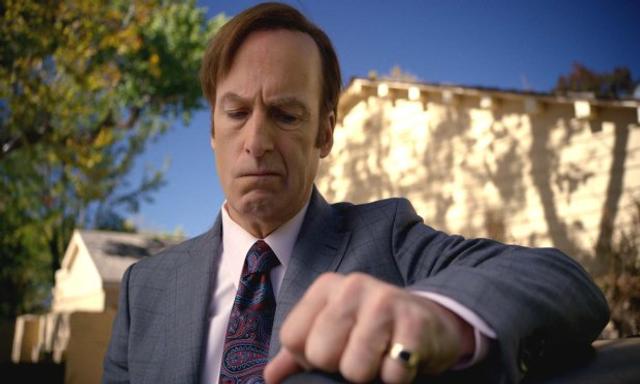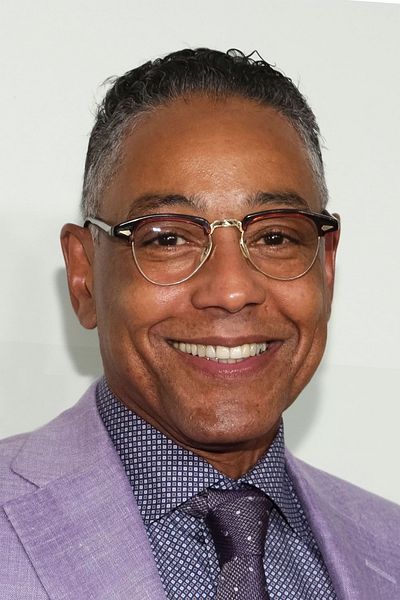We're now three episodes into the third season of Breaking Bad spinoff Better Call Saul.
Be honest with yourself, were you aware it was back on Netflix? Were you even aware that it's gone to third season? When Better Call Saul was first announced, it was done so with great expectations and fanfare. Bob Odenkirk, Jonathan Banks and the creative team of Vince Gilligan and Peter Gould were set to return and it really looked like we had a worthy successor - even though it's a prequel - to Breaking Bad.
After a so-so first season, the shine was starting to come off Better Call Saul and - quite likely - a lot of the audience that tuned in out of curiosity and loyalty to Breaking Bad tuned out by the end of the first season. In a lot of ways, that was probably a big help to the show. It no longer had the eye on it, it didn't have the same weight of expectation, and it could be allowed to grow at its own pace and become its own thing. That's the one thing that pretty much everyone attached to the show has said in interviews - Better Call Saul is not Breaking Bad, it's its own thing.
That's definitely true, because Breaking Bad was never this boring.
In fact, after three seasons, Breaking Bad had completely gripped its audience with expert storytelling, compelling characters, and unbelievably tense plots. By the end of the second season, in fact, you had the airplane disaster over New Mexico and Jesse's girlfriend, Jane, dying from an overdose. That momentum carried into the third season, where you had Gus Fring and the Cousins rampaging through New Mexico, Skyler seducing her boss, and Hank Schrader unravelling from stress. There was so much going on and at no point did you ever feel confused or bored by it. So far, all that's happened in Better Call Saul is Chuck and Jimmy / Saul have argued over ethics in law, Chuck taped a conversation without his knowledge, and now - as of the third episode of the third season - Jimmy's looking at possible disbarment.
The only saving grace of Better Call Saul is Jonathan Banks' masterful performance as Mike Ehrmantraut, and further underlines why Saul Goodman was the wrong character to get a spinoff in the first place. By far, he's the most interesting character in the show and is given the most interesting storylines. In fact, the flashback episode in the first season, Five-O, is the best in the entire series by far. Although it condensed Ehrmantraut's backstory to a single episode, it was masterfully done and reminded us of the gulf between where Breaking Bad and Better Call Saul is.
It's true, Breaking Bad's urgency and purpose is woven into the fabric of the show; Walter White has to make X amount of money before he dies of cancer. Better Call Saul is more about Jimmy McGill's descent into Saul Goodman. While it doesn't come with high stakes in the way that Breaking Bad, there still has to be some kind of impetus for us to watch. All that's really taken place is a few documents have been edited and a bit of morally dubious legal finagling. By the end of the first season, Walter White had dissolved a body in an acid bath and blown up a drug dealer's lair with explosive crystal meth.
Sure, Breaking Bad took a season - maybe two - to find its groove and work itself into the popular consciousness. It's important that good TV is given a chance to develop naturally and grow, instead of living or dying on the ratings of a single season or story arc. At the same time, an investment of time has to be rewarded to the audience and it's clear now that Better Call Saul isn't living up to the mark.
Breaking Bad is a high bar for any show to clear, and Better Call Saul has to forge its own path, but there has to be a reason to tune in every week - and so far, there's been none.


















































































